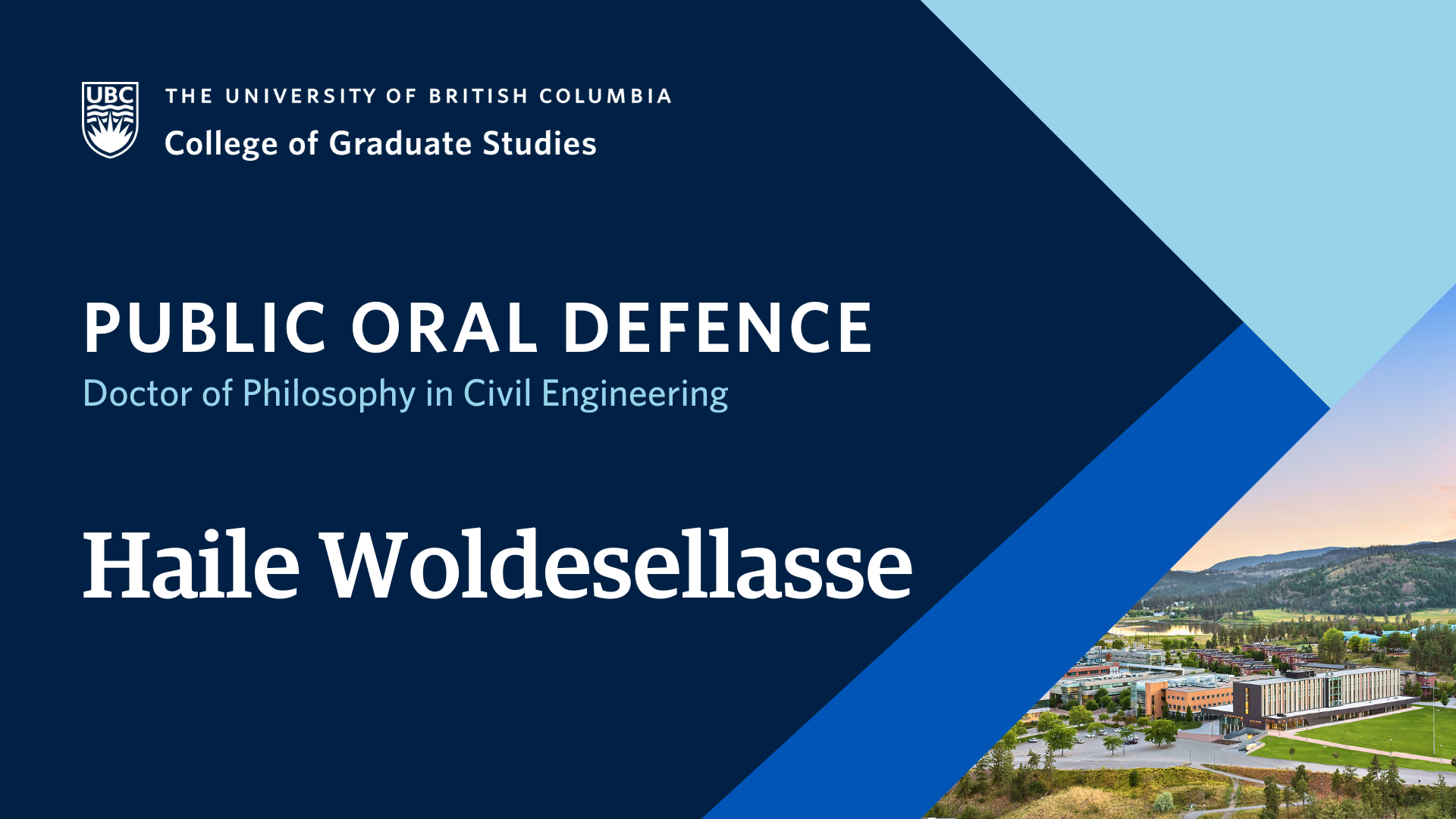
- This event has passed.
Doctoral Examination: Development of a spatial decision support framework for risk assessment of oil and gas pipelines exposed to external pitting corrosion
March 31, 2023 at 9:00 am - 1:00 pm

Haile Woldesellasse, supervised by Dr. Solomon Tesfamariam, will defend their dissertation titled “Development of a spatial decision support framework for risk assessment of oil and gas pipelines exposed to external pitting corrosion” in partial fulfillment of the requirements for the degree of Doctor of Philosophy in Civil Engineering.
An abstract for Woldesellasse’s dissertation is included below.
Examinations are open to all members of the campus community as well as the general public.
Registration is not required for in-person defences.
ABSTRACT
This dissertation proposed a comprehensive decision support tool for the purpose of assessing the risk associated with oil and gas pipelines subjected to external pitting corrosion. The papers that have received the most citations regarding the risk assessment of oil and gas pipelines are identified using a bibliometric study. Imputation techniques and data imbalance handling techniques are then used to handle the common problems in a corrosion database, such as missing values and class imbalance problems. A regression neural network model was used to evaluate the usefulness of both suggested techniques. When the neural network was trained using the complete corrosion database, its predicted performance improved.
The risk assessment framework is designed for oil and gas pipelines that are exposed to external pitting corrosion in a bow-tie framework, which integrates a fault tree and event tree to describe causes and consequences of an event in a common platform. A Bayesian belief network (BBN) was used to incorporate corrosion, failure pressure, and reliability models in order to estimate the probability of pipeline failure due to bursts and leaks. To assess the casualty and environmental impact caused by a gas pipeline failure, a consequence model is also constructed based on a previously established event tree. To calculate the outcome of the event tree, many model components are used, such as the failure probability due to burst and leak acquired from the fault tree, igniting probability, and explosion factors. The estimation of casualties is based on the event tree’s outcomes and the area’s population density. Water pollution and ecological impact from a gas pipeline failure close to protected and conserved areas are used to quantify the environmental impact. The suggested framework’s validity is then demonstrated through sensitivity analysis and scenario analysis.
The proposed risk framework is developed by integrating a BBN and GIS. The reasoning power of the Bayesian network and the spatial capabilities of the GIS combine to form a powerful tool for guiding pipeline infrastructure management decisions. Additionally, it aids pipeline operators in making timely, and cost-effective decisions to avoid accidents in high consequence areas.